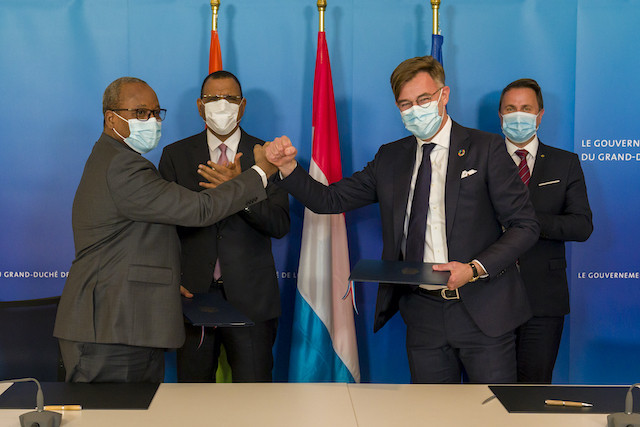Niger first became a priority recipient of Luxembourg development assistance in 1989, and the agreement signed on 19 May is the fourth so-called indicative cooperation programme (ICP), which will provide aid between 2022 and 2026.
The country is the single biggest beneficiary of Luxembourg aid. For the period of 2016 to 2020, it received €97m. The money is managed by the Luxembourg development agency (LuxDev), the Red Cross, Caritas and other international organisations.
The ICP “is a sign of Luxembourg's recognition and strong support for Niger and its people. But above all, this support must also be a message of hope and creation of prospects, especially for the youth,” prime minister Xavier Bettel (DP) said at the signing. “Because for Luxembourg, investing in cooperation means investing in the future, in security and in peace.”
Niger is regarded as a key partner in the Sahel region, with Luxembourg also supporting programmes in Senegal, Mali and Burkina Faso. Together with Chad and Mauritania, the countries form the G5 Sahel, an anti-jihadist alliance.
More than 300 people are estimated to have been killed in jihadist attacks in Niger this year amid a surge in extremist violence. Suspected jihadists in March raided three villages, killing 137 people.
Mohamed Bazoum was sworn in as Niger’s president on 2 April 2021 in the country’s first democratic transfer of power since it gained independence in 1960. His main rival, Mahamane Ousmane, had rejected the election result and the military said they prevented a coup shortly before the inauguration, which was attended by Luxembourg foreign minister Jean Asselborn.
Bazoum’s visit to Luxembourg this week was one of his first overseas trips, showing “the profound friendship that connects our two countries and the excellent relations since more than 30 years--relations founded on shares values, where human dignity, the respect of human rights and democracy are central,” Bettel said.
The Nigerien president also met with Grand Duke Henri during his visit.
The new agreement will serve to implement Luxembourg’s 3D foreign policy approach--development, diplomacy and defence.
Projects funded include access to clean water, food security, healthcare and education as well as rural development with a focus on gender equality, climate change and governance.
Luxembourg in 2019 upgraded its diplomatic representation in Niger to embassy status. A chargé d’affaires is based at the embassy in the capital Niamey, with the ambassador to Senegal also serving Niger.
Niger is one of the world’s poorest nations, ranking last in the UN’s 2020 Human Development Index.
